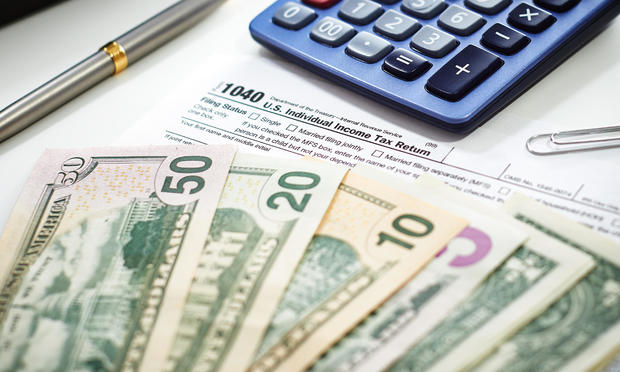Do you pay taxes on CD earnings?
With inflation high, the stock market volatile and the closure of two major banks, many Americans are seeking safe investments for their money — like certificates of deposit (CD).
Not only do CDs offer a guaranteed rate of return, but thanks to rising interest rates, they also come with higher earning capacity than many other investment vehicles do. Currently, some CD accounts are offering APYs of 4% or more. Your typical bank savings account offers just a 0.37% rate.
Still, those earnings don't come for free. If you're considering investing in CDs, here's what you need to know about how they're taxed.
Check out today's CD interest rates here to see how much you could be earning.
Do you pay taxes on CD earnings?
The IRS typically considers CD earnings a type of income. This makes them subject to the typical federal and state income taxes any other earnings are.
"The interest rate a CD pays to you is called a yield," says Marc Barnes, an enrolled agent and managing partner at Copper Canyon Tax and Financial Services in Tuscon, Arizona. "The yield earned on a CD is considered taxable on both state and federal tax returns. This is true regardless of how the money is paid out to the investor — whether physically received or reinvested."
How much should you expect to pay in taxes for CD earnings?
The total you'll pay in taxes on your CD earnings depends on two factors: How much interest your CDs earned and what tax bracket you fall into.
For the former, look to Form 1099-INT, which your bank or lending institution should send you by Jan. 31. This details your total interest earnings from the previous year.
Your tax bracket, on the other hand, depends on the total amount of taxable income you bring in each year (your CD interest included).
"The federal tax brackets for 2022 and 2023 range from 10% to 37% depending on a taxpayer's filing status and taxable income," says Robbin E. Caruso, partner and co-lead of Prager Metis' National Tax Controversy Practice in Cranbury, New Jersey.
How to reduce the amount you pay in taxes for CD earnings
One way to reduce the taxes you pay — on CD earnings or otherwise — is to live somewhere with no state income taxes, like Texas or Washington.
You could also use certain types of retirement accounts to purchase CDs. Traditional IRAs, for example, aren't taxable until you withdraw money in retirement. (Just keep in mind, you could pay even more taxes if you fall into a higher tax bracket then).
Finally, you can also look to other types of investments.
"For people in high-income-tax states such as California or New York, it may be worthwhile to compare CD yields to government-backed T-Bill and Treasury yields," says Michael Ashley Schulman, partner and chief investment officer at Running Point Capital Advisors in El Segundo, California. "Income earned on them is not subject to state taxes."
If you think a CD is right for you, check out today's CD interest rates online now.
The bottom line is
At the end of the day, everyone's tax situation is different. If you want to avoid extra tax burden — or just increase your tax refund — it's always best to consult a tax professional when planning and filing your tax returns. They can also help you better estimate (and prepare for) what taxes your CDs and other investments may require.




